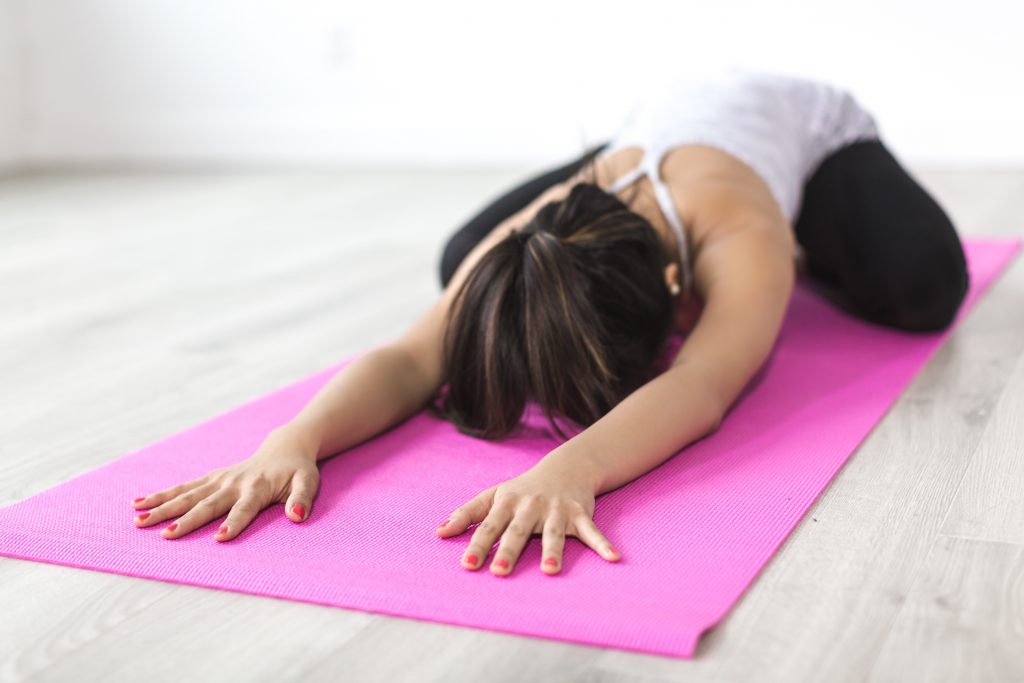ABOUT THE AUTHOR Sarah Lewis C.Psychol., is the principal psychologist at Appreciating Change, a strengths-based psychological consultancy that is committed to applying well-researched positive psychology ideas and interventions to workplace challenges and opportunities at an individual, team or whole organisation level.
Sarah is an associated fellow of the British Psychological Society, a principal member of the Association of Business Psychologists, and a member of the International Positive Psychology Association.
She also collects great positive psychology resources to support consultants, trainers and coaches in their work which are sold through the Positive Psychology online shop. Web: https://acukltd.com Twitter: https://twitter.com/sarahlewis1 LinkedIn: https://www.linkedin.com/in/sarahlewis1
It wouldn’t be unusual if you and other members of your family are feeling higher levels of anxiety than usual as lockdown restrictions continue.
Sadly, we are dealing with a real threat. However, there are things we can all do, as individuals and as family units to boost our resilience, keeping everyone focused on making the best of the current situation, and, also looking ahead to a return to ‘normality’.
Two principles are particularly useful. First, managing anxiety takes mental strength and energy, if we don’t actively recharge, we will become depleted. Secondly the state of our morale affects the state of our immune system (At this point I have to say this doesn’t mean that anyone who becomes ill wasn’t positive enough!). So, if we pro-actively attend to our family’s morale, we are also pro-actively attending to everyone’s health.
Here are some ideas and resources, for managing anxiety and keeping your family’s morale high.
Eat healthily and exercise

You are no longer at the mercy of demands for fast food and other normal daily temptations focus on health eating for everyone. Lots of fruit and vegetables are good for immune system.
Exercise is very important to both mental and physical health. You know the rules about keeping your distance. Put your face mask on and get out there and yomp for an hour somewhere green.
I’m doing a morning workout with my almost daughter. She has Jo Wicks ‘Seven days of sweat’ on the computer her end, then we link up over face time and she instructs me. It’s exhausting, I puff and sweat. It’s social time and I get a great feel-good buzz afterwards. The point is, I would never do it without her company. So perhaps the family could do this together or you can have some time with friends.
Chat a friend
Social contact is very important to our well-being. Although I’m not living alone, I am resolved to talk on the phone to at least one person every day. Why not phone a friend daily and ask about their plans for the day, what they are hoping to achieve during lockdown? You’ll both feel better.

Manage your news feed and other anxiety amplifiers
With 24/7 news it is easy to start watching it compulsively. This won’t do you or the kids any good. You can’t influence things other than by taking the sensible precautions we’ve all been told about. So, take positive control and limit the family’s daily diet. You may prefer reading rather than watching the news. There is less ‘emotional contagion’ from the written word than from a voice, so there’s less transmission of anxiety.
What we want to do is replace anxiety with optimism. A great resource is ‘Positran’s Positive Action Cards’. The science-based cards give easy to follow instructions for over sixty ways to increase your well-being.
If you have to worry, have a worry date

If you know you’re a worrier ‘allow’ yourself a specific allotted time (day 15-30 minutes daily) to name your worries. Write them in a ‘dear diary’ if you like. Or arrange a strictly focused and time limited phone call with another ‘worrywart’. And when your time is up, it’s up. Move on with your day and look after your family knowing you have another half-hour of worry time allocated tomorrow.
Count your blessings
The new science of positive psychology has proved the benefits of the old saying about counting your blessings. Before bedtime, why not get everyone to sit quietly on their own and identify three good things that have happened during the day? It’s good to them down. Doing this regularly helps train your brain to look for the positives in difficult times.
For instance, perhaps you saw a report in the paper on the positive effect of the lockdown for wildlife. You can find lots of similar proven exercises in Vanessa Keys excellent book: 10 keys to happier living. Based on science, written for everyone, it is full of ideas for boosting your mood.
Start projects that take time

‘Wise people’, someone once said ‘prepare for the worse while hoping for the best’. Once you’ve done what you can to prepare for the worse, then turn your family’s energy to hoping for the best.
Starting projects suggests an optimism about the future that becomes self-reinforcing. Uncertainty can act to paralyse us. By pro-actively starting projects we can break out of that paralysis ourselves or encourage family members to do so. Once you get started it will draw you forward. I’m tackling a new tapestry kit. These take me years to complete. But every evening I can admire my handiwork and feel I’m making progress.
Positran has a great set of cards called ‘Positive Transformation Cards’. They are resilience building cards, full of uplifting quotes and insightful questions to help you boost your optimism, hopefulness, and self-confidence in a mindful way.
Practice Appreciative Living
Appreciative Living is based on Appreciative Inquiry. It’s all about seeing and seeking out the best of life. We can’t deny the reality of a worldwide threat to our way of life, but we can still appreciate the things that make life worth living, today. Developing an appreciative eye, especially in times such as these, takes practice and isn’t always easy, but the benefit to our health, well-being, state of mind and ability to remain pro-active in the face of threat, in fact to our resilience, is beyond question. Keeping doing all the things you need to do to stay safe, and start living appreciatively at the same time.

Jackie Kelm is the guru of Appreciative Living. You can find her videos on YouTube. If you are working during this period, the book, ‘Positive Psychology at Work’ explains flow and other positive psychology concepts that might be useful.
And finally
Don’t forget to have a laugh. Make sure you and your family have a chuckle together regularly. Humour releases tension and has been found to be good for your immune system.
She also collects great positive psychology resources to support consultants, trainers and coaches in their work which are sold through the Positive Psychology online shop. Web: https://acukltd.com Twitter: https://twitter.com/sarahlewis1 LinkedIn: https://www.linkedin.com/in/sarahlewis1

